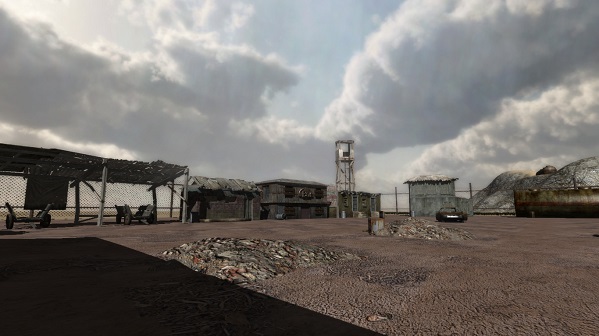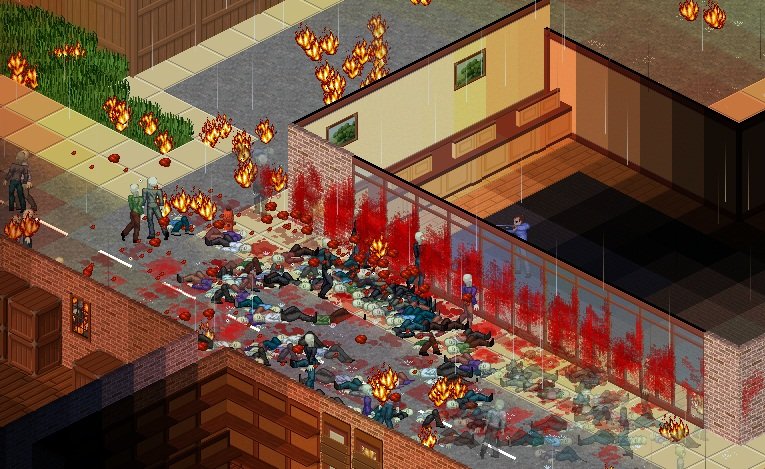This is a topic I’m sure many of you have seen elsewhere and
discussed a great deal. But since I have yet to weigh in on the topic and I
want to keep the blog-posts rolling, why not discuss my take on Early Access
games?
 I like the idea behind Early Access because it allows gamers
to see the game built from the ground up. It saves the developers money by not
having to hire QA testers for the game. Just have the people who want to buy
the game QA test it and use their feedback to improve the product. The funding
for these games doesn’t have to come from a big publisher like EA, Activision,
or Ubisoft, but from the people who want these particular games (much like
kickstarter, but laser focused onto one type of product). It also means that
while the game isn’t fully complete, fans of the product or people who are most
excited for it can play it right away without having to wait potentially years
before the developers have the funds or support needed for a proper game
launch.
I like the idea behind Early Access because it allows gamers
to see the game built from the ground up. It saves the developers money by not
having to hire QA testers for the game. Just have the people who want to buy
the game QA test it and use their feedback to improve the product. The funding
for these games doesn’t have to come from a big publisher like EA, Activision,
or Ubisoft, but from the people who want these particular games (much like
kickstarter, but laser focused onto one type of product). It also means that
while the game isn’t fully complete, fans of the product or people who are most
excited for it can play it right away without having to wait potentially years
before the developers have the funds or support needed for a proper game
launch.
But the positives are certainly outweighed by a number of catastrophically
bad negatives.
First, Steam doesn’t have a system in place to deal with
Early Access titles that don’t finish. It really is a “enter at your own risk”
scenario when it comes to purchasing these games. And while some gamers are
fine with that risk, others aren’t. And certain gamers still would lose their
minds to know that the product they paid for will never be completed. Which is
why I don’t think we can expect a proper “Early Access” program for consoles
anytime soon because, not meaning to offend anyone, but I’ve never really
considered console-gamers to be the most patient people when a product doesn’t
work or needs more stuff to make it work. Hence why they aren’t PC gamers who
spend hours tinkering with their machines to not only work, but work better
than the average machine.
 Second, games released through the Early Access program (I
want to call it the EA program, but that would be misleading and potentially
confusing) are put onto Steam if varying degrees of completion. By that, I mean
we’ve seen games that are nearly done to games that look like they’re on their
very first Alpha-Build or earlier. And while that’s kind of the point, most
games aren’t really all too playable until you get into more of a “Beta” level
build where most of the mechanics and the most crucial elements to the game are
all there so you can do MOST of the things that have been intended for at least
the main portion of the game. This causes some players to leave and never come
back before the game is finished simply because they run out of interesting
things to do. And that just kills the support and possibly the drive of the
indie devs to want to finish the project… oh… and this leads me to…
Second, games released through the Early Access program (I
want to call it the EA program, but that would be misleading and potentially
confusing) are put onto Steam if varying degrees of completion. By that, I mean
we’ve seen games that are nearly done to games that look like they’re on their
very first Alpha-Build or earlier. And while that’s kind of the point, most
games aren’t really all too playable until you get into more of a “Beta” level
build where most of the mechanics and the most crucial elements to the game are
all there so you can do MOST of the things that have been intended for at least
the main portion of the game. This causes some players to leave and never come
back before the game is finished simply because they run out of interesting
things to do. And that just kills the support and possibly the drive of the
indie devs to want to finish the project… oh… and this leads me to… Third, the Early Access Indie Devs themselves. I know I’m
over generalizing with my next statement, so, just to be clear, what I say
doesn’t apply to 100% of the indie devs on Steam. That being said, there are
still plenty of less-than-reputable indie devs on Steam who release crappy
broken games, some with assets stolen from other games or products, and no
matter how broken it is, they’ll basically refuse to do anything about it. If
you criticize it, you get banned from their game’s support page/forum. Again,
this isn’t true of all indie devs on Steam, but there’s an alarming number of
these crooks out there and those who aren’t as experienced or savvy with what
to look out for will get robbed blind by these people before they even know
what hit them.
Third, the Early Access Indie Devs themselves. I know I’m
over generalizing with my next statement, so, just to be clear, what I say
doesn’t apply to 100% of the indie devs on Steam. That being said, there are
still plenty of less-than-reputable indie devs on Steam who release crappy
broken games, some with assets stolen from other games or products, and no
matter how broken it is, they’ll basically refuse to do anything about it. If
you criticize it, you get banned from their game’s support page/forum. Again,
this isn’t true of all indie devs on Steam, but there’s an alarming number of
these crooks out there and those who aren’t as experienced or savvy with what
to look out for will get robbed blind by these people before they even know
what hit them.  And it’s this last point I think that needs to be address
first and foremost before the other pieces can even begin to start working.
Steam needs to start holding these indie devs accountable for the work they say
they’re going to do. If hundreds of people pay a person money for a product and
promised on several features that never get delivered, a refund is something
they deserve if they won’t get the full product. But Steam should, for the most
part, just have stricter rules in regards to how far along an Early Access game
must be to get released. It should request the game already have a following of
a certain number of consumers before release. And it should request weekly (or
monthly) dev time to be submitted so they know the devs are doing what they
were paid to do.
And it’s this last point I think that needs to be address
first and foremost before the other pieces can even begin to start working.
Steam needs to start holding these indie devs accountable for the work they say
they’re going to do. If hundreds of people pay a person money for a product and
promised on several features that never get delivered, a refund is something
they deserve if they won’t get the full product. But Steam should, for the most
part, just have stricter rules in regards to how far along an Early Access game
must be to get released. It should request the game already have a following of
a certain number of consumers before release. And it should request weekly (or
monthly) dev time to be submitted so they know the devs are doing what they
were paid to do.
The only other idea I can think of is to have Let’s Players
enforce these broken Early Access (and Greenlight) games. They put up the risk
and play the game to show if it really is bad or if it’s worth your money. And
while they have to spend a little to do so, they make money from their ad
revenue and the views they for those videos. As such, it balances out for them
where it wouldn’t for the average consumer. And it should be that any Let’s
Plays done by notable Let’s Players (Two Best Friends, RoosterTeeth, Jim
Sterling, Game Grumps, etc) are immediately visible on the game’s store page.
You want to see this game in action without the smoke and mirrors? Click a link
over here to see a Squirt Play or a Rage Quit or a TBFP video.
I think we're a long ways off from having a perfect system in place to figure this out. But it won't change unless we start putting some genuine effort into policing these indie games to sort out the broken, unfiinished messes so that less aware consumers don't get ripped-off blind for wanting to support a product that had promise or had a genuinely good idea behind it.
If you like this post and want to see more content like it, please be sure to like, share, and subscribe. See ya next time!

No comments:
Post a Comment